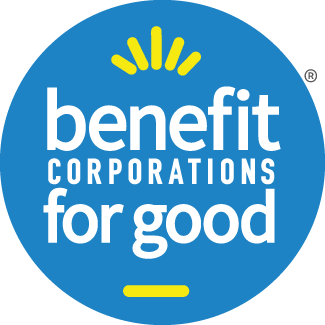Don’t Fake It! People "Sniff Out" Greenwashing
Photo by FuYong Hua
APPLAUSE please…to all those businesses large and small sincerely committed to the triple bottom line of “People, Planet, Profit.” These include social enterprises, B Corps, Benefit Companies and other cause-driven organizations that believe “doing good is good for business.”
These are the authentic ones. Those with honest and sincere efforts. Every day putting into practice the principles of conscientious leadership – supporting their employees, vendors, partners, customers and the community.
For them, it is not just about the money.
But, then there are the others.
Businesses realizing that it is “cool” to announce to the world that they practice social responsibility. Companies that state they promote sustainability but only in words and not actions. Businesses that register as a Benefit Company or Benefit Corporation, yet never get around to honoring the requirements of the statue requiring review and certification by a neutral third party.
It’s called Greenwashing.
All done for branding and to appeal to a customer base that is asking for more social responsibility. According to an article in Forbes Magazine, “faking corporate social responsibility does not fool employees.”
“Greenwashing can be loosely defined as the times in which an organization falsely conveys to consumers that their products, service, or operating practices are socially and/or environmentally responsible.”
So, beware of the consequences:
1. Employees can sniff it out when Corporate Social Responsibility (CSR) efforts are just symbolic rather than substantive and genuine
2. If efforts are only symbolic, they are perceived as self-serving, reactions are negative, and the organization is labeled as a “taker, ultimately motivated by profit” rather than a “giver.”
Companies that “greenwash” also risk the danger of the truth getting out to the public and in today’s world, where social media reigns, customers will depart quickly and ultimately damage the bottom line. A recent business blog, “Never Fake Corporate Responsibility,” cited the most recent and noteworthy examples of customer backlash when green washing occurred:
“Volkswagen hid the fact that millions of its ‘environmentally friendly vehicles’ actually produced more pollutants than legally acceptable. And Coca-Cola recently released a new brand of soda Coca-Cola Life, and although marketed as being light on calories it is actually packed with 17 grams of sugar… not as healthy as claimed.”
Bad news. And they paid a price.
This is also a wake-up call to Benefit Companies and Corporations.
Caring for employees, the community and the planet needs to authentic. It’s not just about registering and incorporating as this well-respected business model. You must sincerely practice what you preach. And there are requirements to ensure you aren’t just greenwashing. One of the most important ones, highlighted on the website of the Secretary of State’s office in each state is, “adopt a third-party standard.”
“Each benefit company is required to assess itself by third-party standards from organizations that meet the statutory requirements.”
A few noteworthy third-party certifiers include:
· B Lab
· Benefit Corporations for Good (an Oregon-based company)
So, don’t fake it. Needless to say, you will face repercussions. And remember: both your employees and your customers will hold you accountable for any “symbolic” statements and activities that aren’t real.
7 Potential Signs a Company is Greenwashing:
1. Giving the impression your business or product is something that it isn’t.
2. Stating you support staff but don’t offer vacations, reasonable work schedules, opportunities and flex time.
3. Just writing a check to a community organization. That’s the cheap way out. Engage with the community and volunteer.
4. Depending only on recycling to call yourself green. Look at the products and services you provide, including the distribution chain to ensure sustainable materials.
5. Falsely advertising or over promising what you can’t deliver.
6. Making decisions without employee and customer input, and then stating “we listen.”
7. Doing good things and then finding a way to make money off them.
Businesses can be forces for good while making a profit. But, please…don’t spin the good if it isn’t real.
—>Learn more about the 6 simple steps to becoming a certified Oregon Benefit Company or benefit corporation.
~benefitcorporationsforgood.com~

